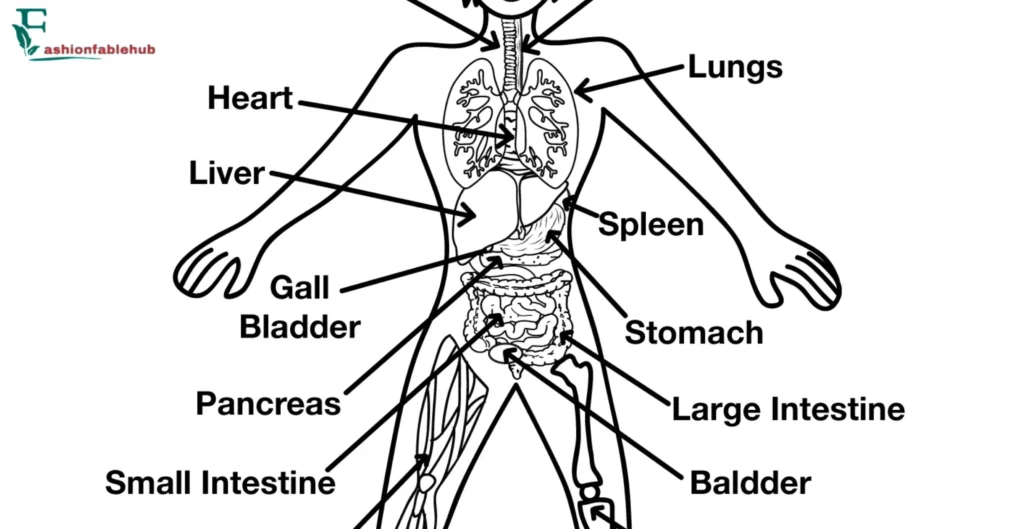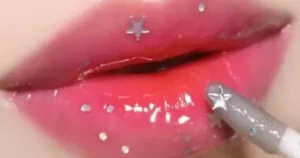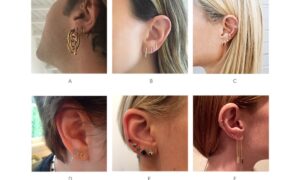Hair testing is considered one of the most reliable methods for detecting long-term cannabis use, including consumption of edibles. THC and its metabolites can be detected in hair for several months, even up to a year or longer after ingesting edibles.
This is because THC is absorbed into the hair follicles through the bloodstream and can remain present in the hair shaft as it grows. The length of time edibles stay detectable in hair depends on various factors, such as the dosage consumed, frequency of use, individual metabolism, and body fat percentage.
Since hair grows at a rate of approximately 0.5 inches per month, a standard 1.5-inch hair sample can provide a detection window of up to 90 days of prior cannabis use. However, for chronic or heavy users of edibles, the detection window can extend even further back in time.
How Edibles Work in the Body
Edibles, also known as cannabis-infused foods or marijuana-infused edibles, are food products that contain one or more cannabis compounds, primarily tetrahydrocannabinol (THC) and cannabidiol (CBD). They are consumed orally, unlike traditional methods of cannabis consumption such as smoking or vaping. Edibles come in various forms, including baked goods, candies, chocolates, beverages, and more.
Types of Edibles
Edibles can be classified into two main categories:
- THC-infused edibles: These edibles contain significant amounts of THC, the primary psychoactive compound in cannabis responsible for the “high” sensation. Examples include THC-infused brownies, gummies, and cookies.
- CBD-infused edibles: These edibles are made with CBD, a non-psychoactive compound found in cannabis known for its potential therapeutic benefits. CBD-infused edibles are often used for medicinal purposes and do not produce a high. Examples include CBD-infused teas, oils, and capsules.
How Edibles Work in the Body

When consumed, edibles undergo a different metabolic process compared to inhaled cannabis. The active compounds in edibles must pass through the digestive system and liver before entering the bloodstream, a process known as “first-pass metabolism.” This process can significantly affect the onset, duration, and intensity of the effects.
The Onset and Duration of Edibles Vs. Inhaled Cannabis
Compared to inhaled cannabis, edibles typically have a slower onset of effects but a longer duration. The onset of edibles can take anywhere from 30 minutes to 2 hours, depending on various factors such as metabolism, dose, and individual differences. However, the effects of edibles can last for several hours, sometimes up to 8 hours or longer.
Factors That Influence How Long Edibles Stay in Your System
Several factors can influence how long edibles stay in your system, including:
- Dosage: Higher doses of THC-infused edibles will generally remain detectable for a longer period.
- Frequency of use: Regular or chronic use of edibles can lead to an accumulation of THC in the body, prolonging the detection time.
- Metabolism: Individual differences in metabolism can affect how quickly the body processes and eliminates THC.
- Body fat percentage: THC is fat-soluble, meaning it can accumulate in fatty tissues and be released gradually over time.
Edible Duration
The duration of edibles can vary greatly depending on the factors mentioned above. While the effects of edibles typically last between 4 to 8 hours, the detection time in hair can be much longer, ranging from several weeks to several months.
Are the Detection Times for Edibles?
Edibles, like other forms of cannabis consumption, can be detected in various biological samples, including hair, urine, blood, and saliva. However, the detection times and sensitivity of these tests can vary.
Edibles Detection Times
- Hair testing: Hair testing is considered one of the most reliable methods for detecting long-term cannabis use, including edibles. THC and its metabolites can be detected in hair for several months, even up to a year or longer, depending on the frequency and amount of use.
- Urine testing: Urine tests are commonly used for drug screening and can detect THC metabolites for several days to several weeks after consuming edibles.
- Blood testing: Blood tests can detect the presence of active THC for a shorter period, typically up to 24-48 hours after consuming edibles.
- Saliva testing: Saliva tests can detect the presence of THC for up to 24-72 hours after consuming edibles.
It’s important to note that these detection times are approximate and can vary based on individual factors such as metabolism, dosage, and frequency of use.
Potential Effects and Duration of Impairment
The effects and duration of impairment from edibles can vary significantly from person to person and depend on several factors, including:
- Dosage: Higher doses of THC-infused edibles can produce more intense and prolonged effects.
- Individual tolerance: Individuals with a higher tolerance to THC may experience less intense effects or require higher doses to achieve the desired effects.
- Metabolism: Faster metabolizers may experience shorter durations of effects, while slower metabolizers may experience longer-lasting effects.
- Combination with other substances: Combining edibles with other substances, such as alcohol or medications, can alter the effects and duration of impairment.
While the physical effects of edibles typically last between 4 to 8 hours, cognitive and psychomotor impairment can persist for several hours longer. It is crucial to exercise caution and avoid activities that require coordination, judgment, or alertness until the effects have fully subsided.
How Can You Reduce the Duration of THC in Your System?
While there is no surefire way to eliminate THC from your system instantly, there are some strategies that may help reduce the duration of detection:
- Abstinence: The most effective way to reduce the duration of THC in your system is to abstain from consuming cannabis products, including edibles.
- Exercise and hydration: Regular exercise and staying well-hydrated can help promote the elimination of THC metabolites from the body.
- Detoxification methods: Some individuals may consider using detoxification products or methods, such as diuretics or specialized detox kits, but their effectiveness is questionable and may pose health risks.
It’s important to note that these methods may not guarantee a negative test result, especially for hair testing, which can detect long-term cannabis use.
Legal and Professional Implications
The legal and professional implications of consuming edibles can vary depending on the laws and regulations in your area, as well as your specific employment or professional circumstances.
Legal Implications
In many jurisdictions, the possession, sale, and consumption of cannabis products, including edibles, are still illegal or have specific regulations and restrictions. Consuming edibles in areas where cannabis is illegal can result in legal consequences, such as fines or even criminal charges.
It’s essential to familiarize yourself with the local laws and regulations regarding cannabis use and possession before consuming edibles.
Additionally, it’s important to note that even in areas where cannabis is legal for recreational or medicinal use, there may be restrictions on public consumption, driving under the influence, or possession limits.
Illinois Recovery Center
If you or someone you know is struggling with cannabis addiction, including edibles, it’s important to seek professional help. The Illinois Recovery Center offers a comprehensive range of addiction treatment services, including detoxification, inpatient and outpatient programs, and ongoing support.
Edibles in Austin
In Austin, Texas, the possession and use of cannabis, including edibles, remains illegal under state law. However, there have been efforts to decriminalize small amounts of cannabis possession within the city limits. It’s crucial to stay informed about the latest laws and regulations regarding cannabis use in Austin.
Average Detection Time
How long do edibles stay in your system?
The average detection time for edibles can vary widely depending on various factors, such as the dosage, frequency of use, individual metabolism, and the testing method used. Here are some general guidelines for different testing methods:
- Hair testing: THC and its metabolites can be detected in hair for several months, even up to a year or longer, depending on the frequency and amount of use.
- Urine testing: Urine tests can typically detect THC metabolites for several days to several weeks after consuming edibles.
- Blood testing: Blood tests can detect the presence of active THC for up to 24-48 hours after consuming edibles.
- Saliva testing: Saliva tests can detect the presence of THC for up to 24-72 hours after consuming edibles.
It’s important to note that these detection times are approximate and can vary based on individual factors.
Edible Marijuana Addiction
While cannabis addiction is generally considered less severe than other substance addictions, prolonged and excessive use of edibles, particularly those containing high levels of THC, can lead to physical and psychological dependence. Symptoms of edible marijuana addiction may include:
- Cravings for edibles
- Inability to control or reduce consumption
- Continued use despite negative consequences
- Tolerance, requiring higher doses to achieve the desired effects
- Withdrawal symptoms when stopping use, such as irritability, insomnia, and loss of appetite
If you or someone you know is struggling with edible marijuana addiction, it’s important to seek professional help from addiction treatment centers or counseling services.
Edible Addiction Help in Austin
If you or a loved one in the Austin area is struggling with addiction to edibles or other forms of cannabis, there are various resources available to help. Organizations like the Austin Recovery Center offer comprehensive addiction treatment programs, including counseling, support groups, and rehabilitation services tailored to individual needs.
Conclusion
The duration of how long edibles stay in your system, particularly in hair follicles, can vary significantly depending on several individual factors. While edibles may provide a discreet and convenient method of cannabis consumption, it’s crucial to understand the potential for extended detection times. Hair testing can reveal evidence of edible use for several months or even up to a year after ingestion.
Consequently, individuals subject to drug screening, especially those in professions with stringent testing policies, should exercise caution and consider the legal and professional implications of consuming edibles. Ultimately, seeking guidance from healthcare professionals or addiction counselors is recommended for those struggling with overconsumption or dependence on cannabis-infused edibles.
By being informed and responsible, individuals can make well-rounded decisions regarding edible use while prioritizing their health, career, and overall well-being.

As a seasoned fashion enthusiast with over 6 years of hands-on experience, I’m dedicated to sharing my expertise and passion for all things hair and earrings.











